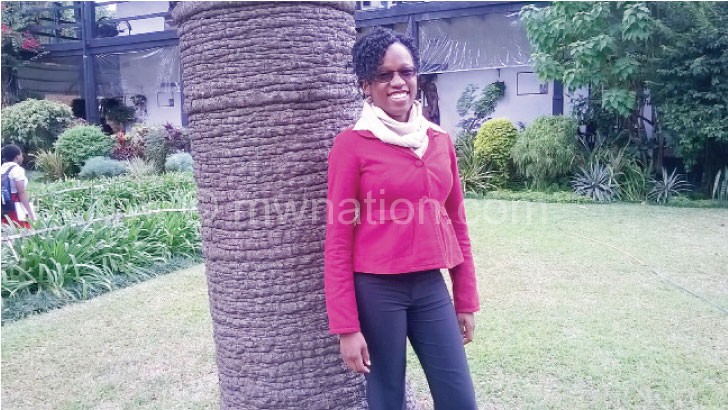Ekari mbvundula: putting words into worlds
Ekari Mbvundula, 28, was one of the finalists in a four-week Nigerian based short fiction competition, The Writer 2016. She was the only Malawian and the only participant from East, Central and Southern Africa selected out of 3 000 applicants across Africa. With her own motto, ‘weaving words into worlds’, she emerged runner up to Nigerian Suyi Davies Okungbowa. Brenda Twea caught up with her.
Born with a very active imagination back in July 1987, Ekari started reading story books as soon as she was able to read. And when the stories she read were not enough to feed her hungry mind, she started writing her own.
She has published work both locally and internationally. One of her stories, Montague’s Last, was published in the tri-monthly free-to-download Nigeria-based online speculative fiction magazine, Omanana. The online magazine captures some of the best fantasy works by African writers.
Ekari also had a short story titled Elephant in the Room, published in a local magazine, The Wealth.
“I realised my passion for writing one time when I tried to quit to focus on a different career. But the urge to write was so strong that there were times when I woke up at three in the morning just to jot ideas down. If I failed to note those ideas, I would go crazy. That is when I knew I could not stop even if I wanted to. So, I decided that no matter what career path I chose, I was still going to write stories,” says Ekari, a risk officer in one of the local companies.
“My immediate reaction to winning second place out of 3 000 writers in Africa was absolute crazy joy; then gratitude, relief and extreme sleepiness,” she laughs, probably because it has been four weeks of little sleep, thinking and writing for the competition.
“It has been a thrill ride! I got the most number of public votes in the final round and the judges vote counts for 60 percent, which got me into second place overall. I am still happy though.”
The 28-year-old confesses that she is on multiple online writer’s forums and Facebook groups which are the means she learned about the just ended writers’ competition.
“I am constantly getting information about opportunities for writers. We are entering an exciting African fiction renaissance where Africans are now creating more opportunities for local writers,” she says.
When all is said and done about the competition, she says she will get back to the project she was working on before, her full length novel, a science fiction story with a strong family theme set in a future Malawi.
“It is fun to write and I am eager to get back to it,” she says.
The journey through The Writer 2016 competition was incredible, she says, although she felt like an underdog in the first week being the only Malawian among the 12 finalists, the rest of whom were Nigerians.
The top 12 spots had been open to all Africans, but Nigerians took almost every single one.
“They don’t play games in the writing field over there. I knew I had to call for all of Malawi and beyond to help me out,” says Ekari, who campaigned for votes through Facebook and other social media forums.
For every round, they were given a theme, a week in advance. She admits it was not easy to write a good story in that timeframe while life went on.
She adds that support from family was crucial and they gave her the time and space to think and work.
The theme for the first week was romance and she chose to create a folktale of an epic rescue on Mulanje Mountain.

The second week’s theme was political drama. She created a story about a personal conflict between the president of a fictional country and the head journalist with whom he shared a secret past, trying to bring him down.
“I got the most requests to write in depths of my stories because everyone wanted to know what happens next,” she explains.
The third week was about speculative fiction, which would include science fiction, horror or anything of the sort. She says this was her favourite.
She chose science fiction using characters from her current work in progress novel, No Room for the Dead.
“It is about a Malawian college student who uses technology to give his grandfather a dignified burial in a world where burying is high treason. And this was the week when people started to push on those votes.
I ended up with the lowest votes, 362 and I truly thought I was finished. Luckily, the judges’ votes count for more than the public’s and they thought my writing was good enough for the final week,” she recalls.
In the final week, with creative non-fiction as the theme, she says she wrote straight from the heart, about a life-saving operation she had when she was only seven years old.
“This is when I saw something incredible. Malawians everywhere were voting, sharing and boosting my post. I even got a big boost from Member of Parliament, Juliana Lunguzi. People I have never met before were supporting me and my public votes finished highest,” she beams.
The best part of the competition, according to her, is that she got everyone excited about reading.
“Malawians do not have a reading culture, I hear that all the time. This competition proves that we do! So do not let it end here, Malawi. Keep reading African fiction and let us put at least three Malawian writers into The Writer 2017,” she advises.
The young writer went to Kamuzu Academy before proceeding to University of Cape Town where she studied Environmental Sciences and Disaster Risk Science.
Throughout her secondary school and university, she wrote and performed in extracurricular stage plays. She says she still likes performing, but then she gets little opportunity to do so, these days.
The young writer who has been raised by her mother since the passing of her father back when she was 10, has a twin sister and they have a younger brother.




